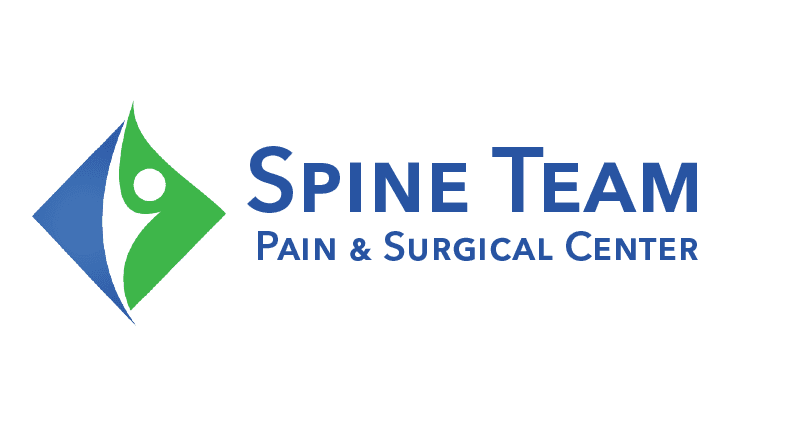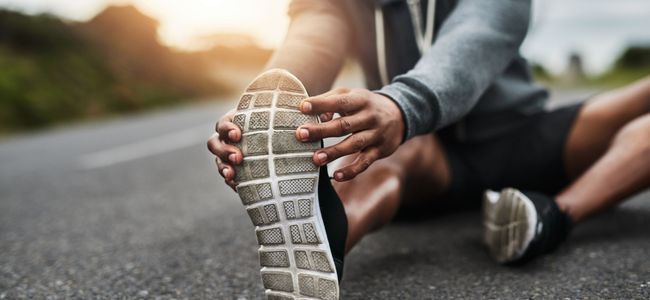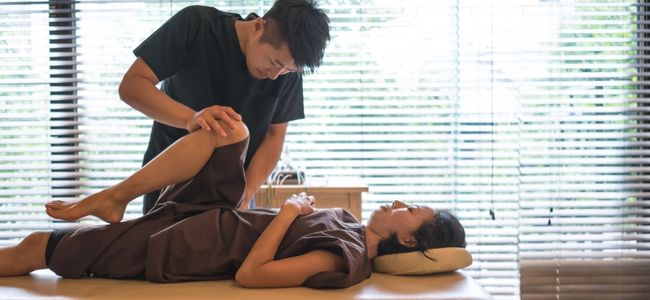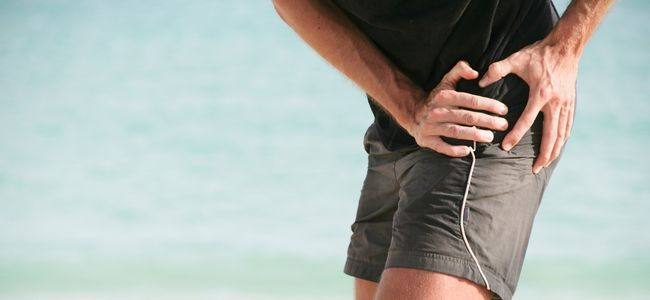What is the Fastest Way to Relieve Hip Pain? Expert Advice
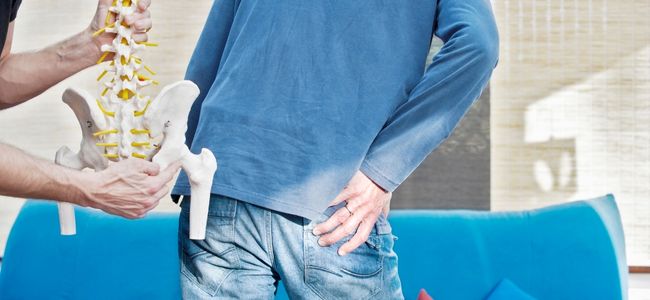
Do you suffer from hip pain? It can be a real nuisance, especially if it's preventing you from doing the things that bring you joy. Whether your hip pain is caused by age or injury, there are ways to find relief quickly and easily.
In this blog post we'll explore some of the fastest ways to relieve hip pain. We'll look at causes of hip pain as well as treatments options available both through traditional medicine and home remedies.
So don't let your painful hips slow down anymore – keep reading to learn more!
Treatment Options for Hip Pain Relief

Physical Therapy
Physical therapy is a great option for those suffering from hip pain. It can help to reduce inflammation, improve range of motion, and strengthen the muscles around the joint. This type of treatment may include exercises such as stretching, strengthening, and balance training. A physical therapist will also be able to provide guidance on proper posture and body mechanics to help prevent further injury or strain.
Medication
Medications are often used in conjunction with other treatments for both hip and knee pain relief. Non-steroidal anti-inflammatory drugs (NSAIDs) such as ibuprofen can reduce inflammation and swelling while providing some pain relief. Corticosteroids may also be prescribed if NSAIDs are not effective enough in relieving symptoms. Opioids may be recommended for more severe cases but should only be taken under the supervision of a doctor due to their potential side effects and risk of addiction or abuse.
Surgery
Surgery is usually reserved for cases where conservative treatments have failed or when there is significant damage that cannot be repaired through non-surgical methods. The most common types of surgery used to treat hip pain include arthroscopy, osteotomy, total hip replacement, and fusion procedures depending on the cause of your condition and severity of symptoms experienced by the patient.
Home Remedies for Hip Pain Relief
Hot and Cold Therapy
Hot and cold therapy is a great way to ease hip pain. Applying heat or cold can reduce inflammation, improve circulation, relax muscles, and provide temporary relief from discomfort.
Heat therapy can be done with a heating pad or hot water bottle placed on the affected area for 15-20 minutes at a time. Cold therapy can be done using an ice pack wrapped in a towel applied to the affected area for 10-15 minutes at a time.
Exercise and Stretching
Exercise and stretching are also important components of relieving hip pain. Gentle stretching exercises that target the hips can help increase flexibility while strengthening muscles around the joint which helps support it better.
Regular exercise such as walking, swimming, biking, yoga, or Pilates will also help keep your joints healthy by increasing blood flow to them which brings more oxygen and nutrients needed for healing.
Massage Therapy
Massage therapy is another effective home remedy for hip pain relief. Massage increases circulation throughout the body, which helps reduce inflammation while promoting relaxation of tight hip muscles surrounding the joint and providing relief from discomfort caused by muscle tension or spasms in those areas.
A professional massage therapist may be able to identify trigger points that could be causing your hip pain as well as recommend specific techniques you can use at home between sessions if needed.
Alternative Therapies for Hip Pain Relief
Acupuncture
Acupuncture is an ancient Chinese practice that involves inserting thin needles into specific points on the body to relieve pain. Acupressure is a similar technique, but instead of using needles, it uses pressure from the fingers or hands to stimulate these same points.
Both techniques can be used to help reduce hip pain by stimulating circulation in the area and releasing endorphins which are natural pain relievers.
Chiropractic Care
Chiropractic care focuses on treating misalignments in the spine that may be causing hip pain. A chiropractor will use gentle manipulation of joints and muscles to restore proper alignment and improve mobility in affected hip joints. This type of treatment can provide relief from chronic hip pain as well as improve overall posture and balance.
Herbal Supplements
Herbal supplements such as turmeric, ginger, boswellia, devil's claw, white willow bark extract, cayenne pepper extract, capsaicin cream, or ointment may also help reduce inflammation associated with hip pain.
These herbs have anti-inflammatory properties that can help reduce swelling around joints while providing some relief from discomfort caused by arthritis or other conditions affecting the hips.
Causes of Hip Pain
Injury or Trauma
This could be from a direct blow, such as a fall, or from repetitive motion over time. Osteoarthritis is also common in people who have had an injury to their hip joint. It’s important to seek medical attention if you experience any type of trauma to your hip bone or joint.
Arthritis
An arthritic hip joint is one of the most common causes of hip pain and stiffness. There are two main types of arthritis that affect the hips: osteoarthritis and rheumatoid arthritis. Osteoarthritis occurs when cartilage between bones wears away, leading to bone-on-bone contact which causes inflammation and pain in the affected area.
Rheumatoid arthritis is an autoimmune disorder where your body attacks its own tissues causing inflammation and swelling in joints like the hips, knees, ankles, wrists and elbows. Treatment for both types of hip pain caused by arthritis typically includes medications like nonsteroidal anti-inflammatory drugs (NSAIDs) as well as physical therapy exercises designed specifically for arthritic patients.
Key Takeaway: Injuries or trauma to the hip joint, as well as arthritis, can cause pain and should be treated with medications like NSAIDs and physical therapy exercises.
Bursitis
A painful condition that affects the small, fluid-filled sacs (known as bursae). As these sacs cushion the tendons, muscles, and bones near the joints, they become inflamed, causing discomfort when holding a position for too long. Bursitis usually affects the areas that frequently perform repetitive movements.
Tendinitis
Tendinitis is a condition that causes pain and tenderness over a joint as a result of inflammation in the thick fibrous cords responsible for connecting muscles to bones. Prolonged, untreated inflammation can lead to tendons vulnerable to tear, eventually requiring surgery.
Muscle or Tendon Strain
A muscle or tendon strain can limit one’s ability to move freely. The fibrous tissue connecting the muscles to the bones is affected by minor injuries. In case of severe injuries, partial or complete tears are noticed in these tissues, paired with an inability to move without pain.
Hip Labral Tear
A hip labral tear concerns the labrum that covers the hip joint socket’s outside rim. It acts like a gasket that securely holds the ball at the top of the thighbone within the hip socket. Structural problems of the hip also lead to such tears aside from movement tears.
Cancer/Tumors
A cancerous bone tumor in the hip can result in pain, swelling, and fractures. However, bone cancers in the hips are rare. Different types of bone cancers include osteosarcoma, Ewing sarcoma, leukemia, chondrosarcoma, and metastatic bone cancer. Swelling, tenderness, and unexplained weight loss are common symptoms.
FAQs in Relation to What is the Fastest Way to Relieve Hip Pain
How do I get instant relief from hip pain?
If you are experiencing hip pain, there are several steps you can take to get instant relief.
First, rest the affected area and avoid any activities that cause discomfort or further aggravation.
Secondly, apply a cold compress or an ice pack to the area for 15-20 minutes at a time throughout the day.
Thirdly, take over-the-counter medications such as ibuprofen or acetaminophen to reduce inflammation and provide temporary relief from pain.
Finally, if your symptoms persist after trying these methods of self-care, contact your doctor for additional advice on how best to manage your condition.
Should I keep walking with hip pain?
Depending on how bad the pain is, you may want to avoid walking more than necessary. Pain is your body's way of telling you something is wrong and needs to be addressed. If the pain persists or worsens, it could indicate a more serious underlying condition that requires medical attention. Our Spokane Pain Management team can help diagnose the cause of your hip pain and provide treatment options to reduce or eliminate it so you can get back to living a life free from discomfort.
What is the home remedy for hip pain?
Hip pain can be relieved with a variety of home remedies. Resting, applying ice or heat to the affected area, stretching and strengthening exercises, using over-the-counter medications such as ibuprofen or acetaminophen, and wearing supportive shoes are all effective methods for relieving hip pain.
Additionally, lifestyle changes such as maintaining a healthy weight and avoiding activities that cause strain on the hips can help reduce discomfort in the long run. Losing even a few pounds can help reduce the amount of weight your hip needs to carry. If these methods do not provide relief after several weeks of use, it is important to consult your doctor for further evaluation and treatment options.
How should I sleep for hip pain?
Sleeping with hip pain can be difficult, but there are a few things you can do to make it more comfortable. First, try sleeping on your back or side with a pillow between your legs for support. If that doesn't work, consider placing a pillow under the painful area to reduce pressure and provide cushioning.
Additionally, if you're having trouble finding a comfortable position in bed, try using an adjustable mattress or special body pillows designed specifically for hip pain relief. With these tips and the help of our Spokane Pain Management team, you should be able to find some relief from your hip pain while sleeping.
What Can Cause Hip Pain When Walking?
Hip pain, especially when walking, can be due to various reasons; here are some common ones to look out for:
- Issues with the muscles, tendons, and joints (including Arthritis, Tendinitis, Osteoarthritis, and Iliotibial band tightness)
- Hip labral tear that causes pain and an unsettling sensation of clicking feeling.
- Hip flexor strain is when the flexor muscles are strained, making it difficult for a person to move their knees upward.
- Sprain or strain as a result of sudden jerks or injury.
- A decrease in bone density makes it difficult for them to take the weight and movements.
Ways to reduce hip pain when walking
Here are some effective ways to reduce hip pain when walking:
- Wear walking shoes with extra cushioning that will put less stress and strain on your hips.
- Introduce more variety to your movements. For instance, instead of always walking in a park, consider taking the stairs or even going hiking.
- Opt for hot or cold therapy if the pain becomes unmanageable.
- Use pain relief ointment or over-the-counter medication to relieve pain and discomfort.
- Consider getting hip pain treatment or massage therapy to reduce stress and supplement movement.
- Invest in gears that will support your back, hips, and knees while you are walking. These can include compression socks, back support belts, and knee cap protectors.
When to see a doctor?
While many people with hip pain resort to trying home hip pain remedies, we highly recommend contacting a doctor immediately if the pain makes it difficult to go through everyday activities. If you are experiencing a tight, numbing sensation while walking and find it difficult to stay still after walking for long. Additionally, if you find it challenging to sit or lie down without fully relaxing, it is also a sign that you need to seek medical attention immediately. Please note that if the pain-relieving medication is not helping, avoid taking more than the recommended dosage.
Conclusion
In conclusion, hip pain can be debilitating and can interfere with daily activities. Fortunately, there are a variety of treatment options available to help you find relief from your hip pain. Depending on the cause of your hip pain, treatments may include medication, physical therapy exercises, home remedies or alternative therapies such as acupuncture or massage. By exploring all these options and finding the one that works best for you, you can experience the fastest way to relieve hip pain and get back to living life without discomfort.
Are you suffering from hip pain? Do you want to find the fastest way to relieve it and get back on track to living a pain FREE life? The Spokane Spine Team is here for you. Our experienced team of medical professionals will work together to develop an individualized plan that is tailored specifically to your needs.
We are dedicated to helping our patients achieve their goals, reduce discomfort, and return to their active lifestyles. Contact us today to start working towards getting rid of your hip pain and getting back to a normal pain free life!
